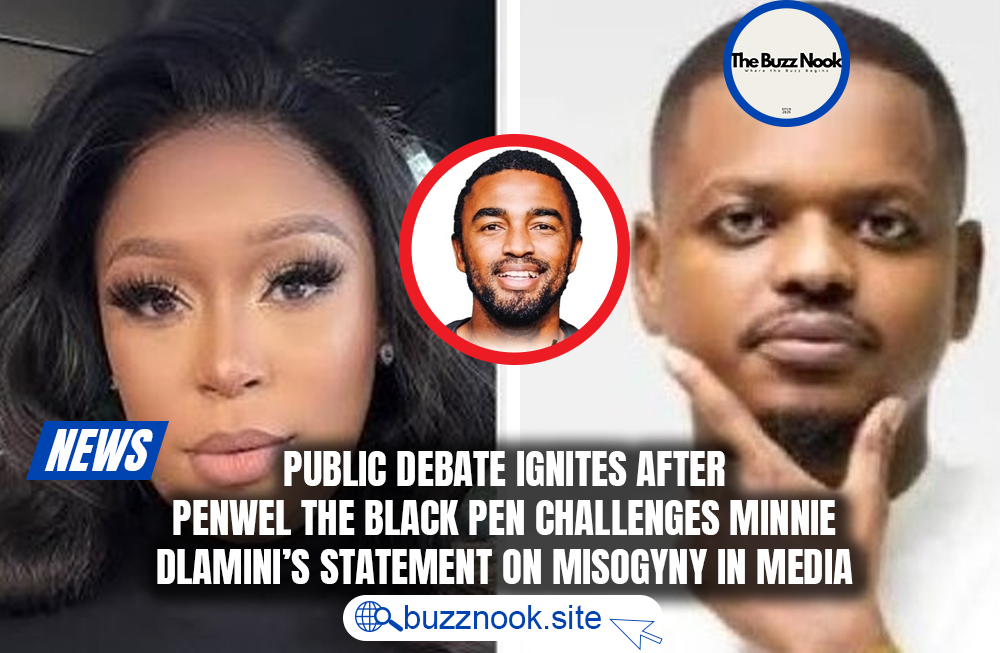
Public Debate Ignites After Penwel the Black Pen Challenges Minnie Dlamini’s Statement on Misogyny in Media
Johannesburg – 14 May 2025
A storm of public debate has erupted on social media following a pointed critique by Penwel the Black Pen, who took to X (formerly Twitter) to voice concerns about Minnie Dlamini’s recent public statement regarding misogyny and her legal action against Podcast and Chill with MacG.
Earlier this week, Dlamini released a statement denouncing the alleged defamatory remarks made by podcaster MacG, which she said have damaged her reputation and perpetuated misogyny in South Africa’s entertainment landscape. While her bold stance drew support from many, Penwel’s response introduced a more complex and controversial perspective that is rapidly gaining traction online.
In his thread, Penwel began by affirming his full support for Dlamini’s right to defend herself, seek legal recourse, and call out inappropriate behavior from public figures. He commended her for not accepting a mere apology and highlighted the broader issue of accountability within the media industry.
However, Penwel shifted gears as he critiqued what he called “selective feminism,” questioning whether Dlamini’s public advocacy for women overlooked her own history of controversial commentary, particularly concerning men.
“Did she not consider that Itumeleng Khune is also a man, father, husband & son, when she repeatedly used him as entertainment fodder?” he wrote. He also referenced a past tweet by Dlamini regarding her celebrity crush, Thierry Henry, which went viral shortly after her marriage, suggesting it was insensitive toward her then-husband, Quinton Jones.
Penwel went on to argue that media toxicity affects both genders, pointing out that Podcast and Chill has made disparaging remarks about male celebrities such as Cassper Nyovest and DJ Maphorisa just as frequently. He called for a more balanced discourse around media responsibility and gender-based commentary.
“Gender wars – especially among Black people – are engineered,” he cautioned. “We must not be selective in protecting one gender over the other.”
Perhaps most striking was his assertion that the popularity of controversial male voices such as Andrew Tate, Shadaya Knight, Nota, and others stems from a growing male frustration over being “verbally, financially & emotionally abused without any clapbacks.” He pointed to South Africa’s alarming male suicide rate as a symptom of deeper, unaddressed issues within gender discourse.
Penwel closed by encouraging Minnie Dlamini to focus solely on her own case, cautioning against framing it as a broader gender war unless she is also prepared to reflect on her own contributions to what he terms “toxicity in media.”
The response to his post has been mixed, with some praising his candid, reflective stance while others accuse him of derailing a much-needed conversation about the systemic mistreatment of women in media.
Neither Minnie Dlamini nor representatives from Podcast and Chill have officially responded to Penwel’s comments at the time of publishing.
As the conversation unfolds, one thing is clear: the intersection of gender, media, and accountability in South Africa continues to be a lightning rod for public opinion — with no easy answers in sight.